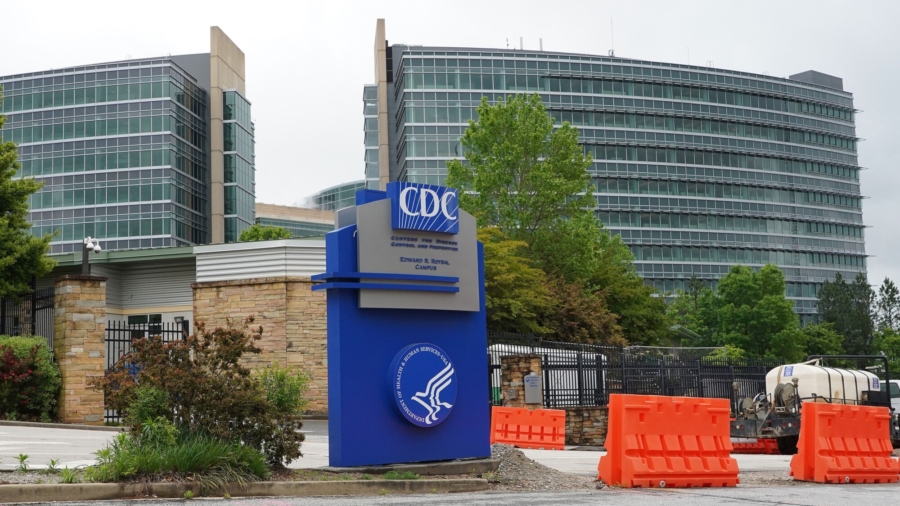Further research published by The Centers for Disease Control and Prevention (CDC) on Jan. 7 reiterated that the COVID-19 vaccines protect recipients, while serious outcomes associated with the shots were seen in individuals who had risk factors.
Every vaccinated individual who suffered serious outcomes as part of a study of more than 1.2 million people had at least one risk factor that left them vulnerable, the CDC said in its Morbidity and Mortality Weekly Report (MMWR).
The study defined serious COVID-19 outcomes as hospitalization with a diagnosis of acute respiratory failure, the need for noninvasive ventilation (NIV), ICU admission, including requiring invasive mechanical ventilation, and death.
The health agency studied approximately 1,228,664 persons aged 18 and over who completed primary vaccination from December 2020 to October 2021, receiving either Pfizer-BioNTech, Moderna, Johnson & Johnson, or an “unspecified mRNA vaccine.”
Among these, 2,246 contracted COVID-19, including 327 who were hospitalized, while 189 had a severe COVID-19 outcome, and 36 had a COVID-19–related death (including nine persons discharged to hospice), the CDC said.
Among those who acquired COVID-19 after primary vaccination, 36 died, 24 survived and were admitted to an ICU, and 129 survived but were diagnosed with acute respiratory failure or required non-invasive ventilation but were not admitted to an ICU.
The CDC said that severe outcomes associated with getting the vaccine are rare, with 0.015 percent of those who were studied having severe outcomes and 0.0033 percent of participants dying.
Those who suffered serious outcomes had risk factors which included being aged 65 and older, being immunocompromised, or having underlying conditions involving pulmonary disease, liver disease, chronic kidney disease, neurologic disease, diabetes, or cardiac disease.
All those with severe outcomes had at least one of these risk factors, and 77.8 percent of those who died had four or more risk factors, the CDC said.
“Vaccinated persons who are older, immunosuppressed, or have other underlying conditions should receive targeted interventions including chronic disease management, precautions to reduce exposure, additional primary and booster vaccine doses, and effective pharmaceutical therapy to mitigate risk for severe outcomes,” the CDC said. “Increasing vaccination coverage is a critical public health priority.”
Among 3,395 persons who received booster or additional vaccine doses, 27 contracted COVID-19, of which three had severe outcomes but this did not include ICU admission or deaths.
The CDC also noted that population-wide data has demonstrated that COVID-19 hospitalizations and deaths are more frequent among Hispanic, non-Hispanic Black, and non-Hispanic American Indian or Alaska Native persons than among non-Hispanic White persons.
This might be down to multiple factors, including higher levels of exposure to the virus, reduced access to care, and higher rates of uncontrolled underlying conditions among these populations, the CDC said. However, the agency has not found any association between race/ethnicity and severe COVID-19 outcomes after receiving the shot.
The study published Thursday was conducted before the discovery of the highly transmissible, although less severe, Omicron variant in South Africa in November.
The World Health Organization (WHO) said Thursday that worldwide cases of COVID-19 have “increased sharply” in the past week but the overall number of deaths dropped.
Between Dec. 27, 2021, and Jan. 2, 2022, the number of cases increased by 71 percent compared to the previous week, the agency said in its weekly epidemiological update, although it did not reference the Omicron variant. Meanwhile, it said the number of deaths dropped by 10 percent worldwide.
The figures come as Omicron continues to spread across the globe. This week, the U.S. Centers for Disease Control and Prevention (CDC) reported that Omicron makes up about 95.4 percent of all COVID-19 cases, supplanting the previously dominant Delta strain.
However, the drop in the number of deaths and the rise in cases suggests the Omicron variant presents milder symptoms than previous variants, including Delta.
From The Epoch Times


